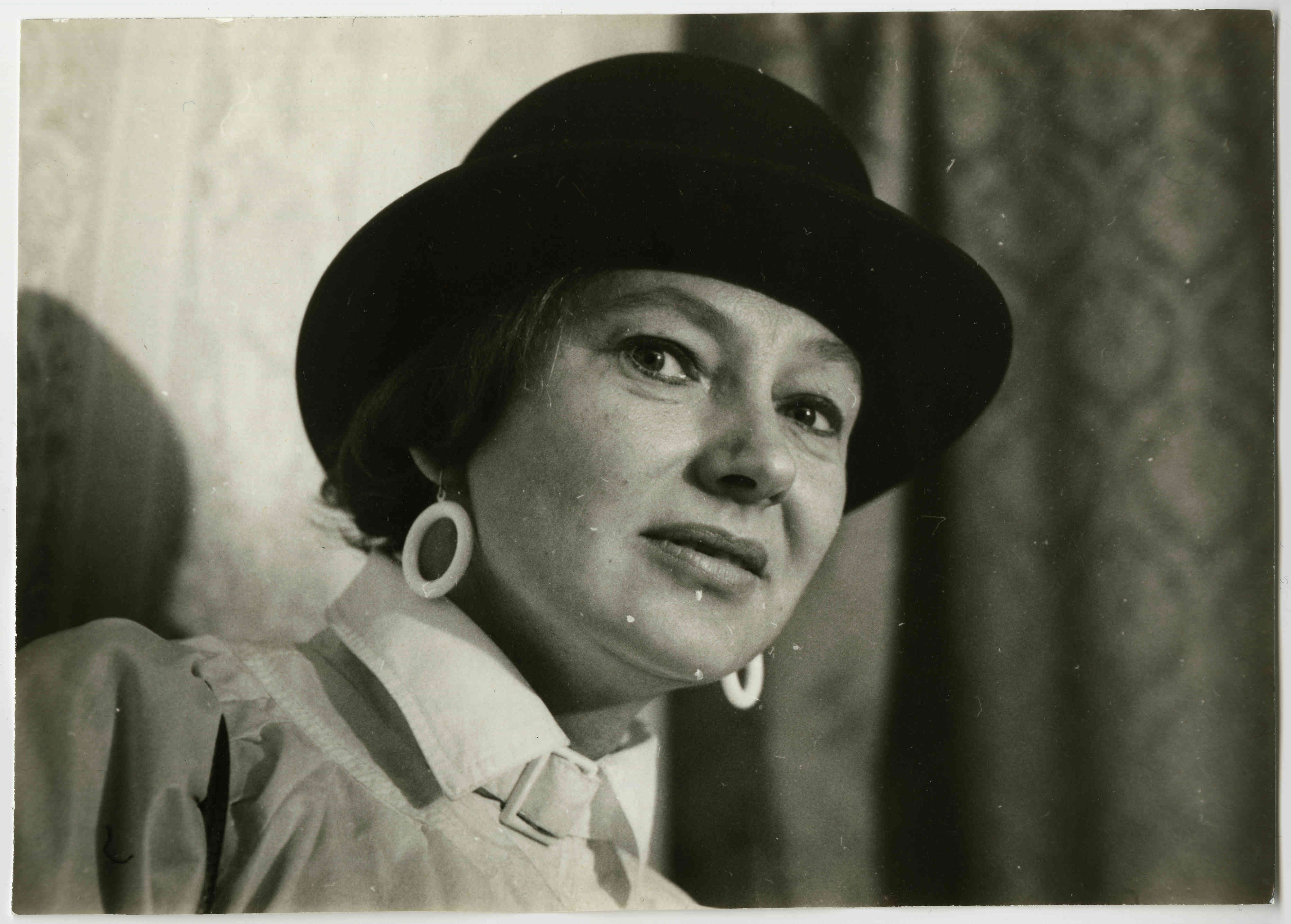
Kai-Mai Olbri
Kai-Mai Olbri (since 1989 real name Kai-Mai Kaarna, b. 5. V 1943) is an Estonian poet and artist.
Olbri was born in Tallinn. She graduated in 1971 from the Estonian State Institute of Art, specialising in metalworking, but she has gained fame as a painter. She has been a member of the Estonian Artists’ Union since 1994, and the Painters’ Union since 1998. From 1998 to 2004 she was Chair of the Association of Water-Colour Artists. She has been a member of the Writers’ Union since 2005.
She has participated in many exhibitions with her work. She has had a number of personal exhibitions over the years at Estonia’s best-known galleries and in Peru, Finland and Latvia. Her paintings are in private collections in more than twenty countries, as well as the Estonian National Museum of Art and the Arsenal Museum in Riga. Kai-Mai Olbri does not restrict herself to painting; rather, her creative nature is expressed in synthetic art forms. The openings of her exhibitions are performances of poetry, music and dance, in which she herself plays a key role. Olbri’s artistic and literary work, full of colour and emotion, has been influenced by her interest in tango, South America and its culture.
Kai-Mai Olbri has made several films, both as producer and as screenplay author. The creative synthesis as a jewellery, costume and installation artist, poet, Hispanicist and set designer is evident in her video film Aheldatud laul (‘The Shackled Song’). In 2009 came the premiere of Kai-Mai Olbri’s autobiographical film Vabadus algab seest (‘Freedom Begins Within’), in which the author analyses her own complex and varied creative nature, trying in the first place to work it out for herself.
Olbri’s first two poetry collections were Pöördumatud sõnad (‘Irreversible Words’, 1991) and Õhtune post (‘Evening Post’, 2005). Her poems have been called personal by the critics. Kai-Mai Olbri has also written poetry in Spanish. In her later work she has cultivated the haiku form extensively. She has written one play: Karje: stseenid elust (‘The Scream: Scenes from a Life’, 2006). In 2008 Olbri produced the travel book Inspireeriv Itaalia: reisikiri, novelletid (‘Inspiring Italy: a Travelogue and Mini-Prose’).
L. P. (Translated by C. M.)
Books in Estonian
Poems
Pöördumatud sõnad. Tallinn: Eesti Raamat, 1991, 93 lk.
Õhtune post. Tallinn: K.-M. Kaarna, 2005, 135 lk. [Luuletused eesti ja hispaania keeles.]
Täiskuu põhjatu kaev = El pozo sin fondo de la luna llena. tõlkinud Kai-Mai Olbri, eessõna: Gocho Versolari. Tallinn: Canopus, 2013, 218 lk.
F. Javier Roman López de la Serna & Kai Mai-Olbri, Seis más seis es uno = Kuus pluss kuus on üks. Järveküla (Harjumaa): Kaarna, 2015, 32 lk.
101 haikut. Järveküla: Kaarna, 2017, 73 lk.
Elujooned. Kakskeelne (eesti ja hispaania) = Líneas de la vida. Bilingüe (estonio y castellano). Koostanud Kai-Mai Kaarna; tõlge hispaania keelde ja kujundus: Kai-Mai Olbri; eessõna: Juan Emilio Ríos Vera. Tallinn: Kaarna, 2017, 214 lk.
Une pealt = De ensoñaciones. Tõlge hispaania keelde, kujundus ja illustratsioonid: Kai-Mai Olbri; eessõna: Tõnu Õnnepalu, Juan Emilio Ríos Vera. Tallinn: Kaarna, 2018, 130 lk.
Pauk luuavarrest. Autori illustratsioonid. Tallinn: Kaarna, 2018, 44 lk. [Lasteluule.]
Stories
Inspireeriv Itaalia. Reisikiri, novelletid. Tallinn: Kaarna, 2008, 141 lk.
Plays
Karje. Stseenid elust. Näidend kahes vaatuses. Tallinn: Umara, 2006, 86 lk.
Humour
Psühhopaadialuse uudissõnastik. Sissejuhatus: Heinz Valk. Tallinn: Kaarna, 2016, 57 lk.
Non-fiction
Inspireeriv Itaalia. Reisikiri, novelletid. Tallinn: Kaarna, 2008, 141 lk.



